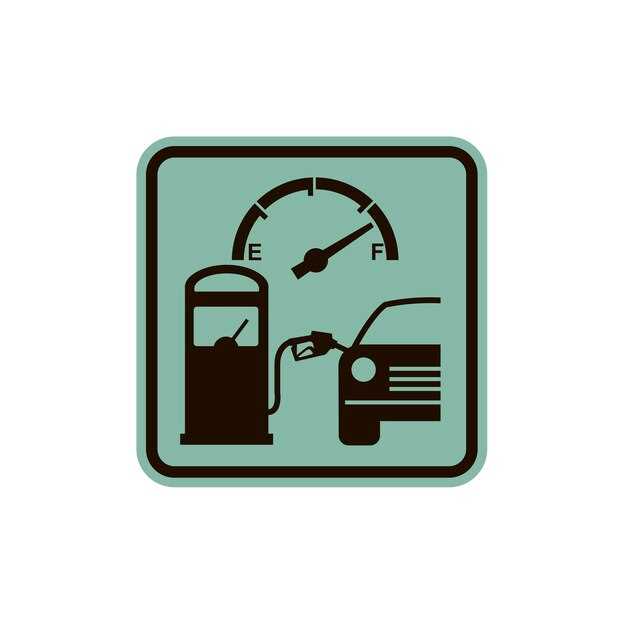
Your vehicle’s alternator plays a crucial role in keeping its electrical system functioning optimally. This vital component is responsible for charging the battery and powering various electrical systems while the engine is running. Without a properly functioning alternator, your vehicle may experience a variety of issues, ranging from dimming headlights to complete electrical failure.
Recognizing the signs that your alternator may need an upgrade can save you from unexpected breakdowns and costly repairs. Common symptoms include flickering dashboard lights, unusual noises coming from the engine bay, or difficulty starting your vehicle. Each of these indicators points to the potential deterioration of your alternator, and timely attention can prevent further complications.
In this article, we will explore these warning signs in detail and offer practical tips on how to assess your alternator’s condition. Understanding these aspects will empower you to maintain your vehicle’s electrical system effectively and ensure your car remains reliable on the road.
Dim or Flickering Dashboard Lights

One of the most noticeable signs that your vehicle’s alternator may require an upgrade is the appearance of dim or flickering dashboard lights. These lights are an integral part of the electrical system, providing essential information about your vehicle’s status, such as speed, fuel level, and warning signals.
When the alternator begins to fail, it may not provide a consistent flow of electricity, leading to fluctuations in the brightness of the dashboard lights. If you notice that these lights flicker or are noticeably dimmer than usual, it could indicate that the alternator is struggling to keep up with the electrical demands of the vehicle.
Additionally, other electrical components may also exhibit irregular behavior during this time. For instance, you might observe that headlights pulsate or that power windows operate sluggishly. Addressing the issue promptly ensures that you maintain the integrity of your vehicle’s electrical system and prevents further complications down the line.
Regularly checking the battery and alternator performance can help you detect these symptoms early. If you’re experiencing dim or flickering dashboard lights, it’s advisable to have the alternator inspected and potentially upgraded to avoid more extensive electrical issues.
Unusual Noises from the Engine Compartment
When your vehicle’s alternator begins to fail, it can often lead to unusual noises emanating from the engine compartment. These sounds may include grinding, whining, or squealing, which are indicators that the alternator is struggling to function properly. Such noises can be attributed to several factors, including worn-out bearings or a failing electrical component within the alternator.
A grinding noise often signals that the bearings inside the alternator are worn out, leading to increased friction and eventual failure. This not only affects the alternator’s performance but can also impact other electrical systems in your vehicle. Conversely, a whining or high-pitched sound may indicate that the alternator is overworking to supply power due to an underlying electrical issue or excessive load.
It’s crucial to address these noises promptly, as ignoring them could result in complete alternator failure, leaving your vehicle unable to start or operate efficiently. Regular maintenance and early detection of these symptoms can save you from more significant problems and costly repairs down the line.
Dead or Weak Battery Complaints

One of the most common signs that your vehicle’s alternator may need an upgrade is consistent complaints about a dead or weak battery. A healthy battery relies on a properly functioning electrical system, which is powered by the alternator. If you find yourself frequently jump-starting your vehicle or experiencing difficulty starting the engine, it could indicate that the alternator is not charging the battery effectively.
Electrical issues often arise when the alternator fails to convert mechanical energy into electrical energy. This can lead to insufficient power delivery to the battery, causing it to drain excessively. In some cases, the battery itself might be functioning properly, but without adequate charge from the alternator, it cannot hold a charge for a long period.
In addition to starting issues, other symptoms associated with a dead or weak battery may include dimming headlights or interior lights, erratic behavior of electrical components, and warning lights illuminating on the dashboard. If you encounter these problems regularly, it is essential to inspect both the battery and the alternator to determine if an upgrade or replacement is necessary for optimal performance.
Frequent Electronics Malfunctions
One of the most obvious signs that your vehicle’s alternator may be failing is the frequent malfunctioning of electrical components. If you start experiencing issues with various electronic systems in your car, it could indicate that your alternator is unable to supply adequate power.
The electrical system in vehicles is complex, and the alternator plays a crucial role in ensuring that all components receive the necessary voltage. A failing alternator typically leads to inconsistent power supply, resulting in erratic behavior of electronic systems. This might include dimming headlights, malfunctioning radios, unresponsive power windows, or error messages on the dashboard.
Below is a table summarizing common electronic malfunctions associated with alternator problems:
| Malfunction | Description |
|---|---|
| Dimming Headlights | Headlights that flicker or appear dimmer than normal, especially at idle. |
| Radio Issues | Intermittent sound loss or the radio shutting off unexpectedly. |
| Power Window Problems | Power windows that operate slowly or don’t move at all. |
| Dashboard Warnings | Frequent warning lights or error messages related to the electrical system. |
| Performance Drops | Unusual engine performance, stalling, or difficulty starting the vehicle. |
If you notice any of these issues, it’s important to assess your alternator’s performance and consider having it checked or replaced. Ignoring these signs can lead to further electrical system complications and potentially leave you stranded.
Warning Lights on the Instrument Cluster
The instrument cluster of your vehicle is equipped with various warning lights that serve as crucial indicators of your car’s health, particularly concerning the alternator and electrical systems. Recognizing these warning signals can help you address potential issues before they escalate into costly repairs.
Here are key warning lights to monitor:
- Battery Warning Light: This light indicates a problem with the charging system. It can mean that the alternator is not supplying sufficient power to recharge the battery.
- Check Engine Light: While this light can indicate numerous vehicle problems, it may also relate to electrical issues, including alternator failures. Scanning the engine codes can help pinpoint the exact issue.
- Voltage Warning Light: Found in some models, this light illuminates when the voltage in the electrical system is outside of normal ranges, signaling that the alternator may be malfunctioning.
- Oil Pressure Warning Light: Although primarily related to oil pressure, if this light appears alongside other electrical warnings, it may indicate combined electrical system failure, affecting alternator performance.
It’s essential to respond promptly if any of these warning lights activate. Ignoring these signals can lead to further complications, primarily affecting the vehicle’s electrical systems and performance.
Regular maintenance checks, including testing the alternator, can help prevent these warning lights from appearing. If you notice any of the above indicators, consider having a professional mechanic inspect your vehicle to ensure your alternator and electrical system are functioning correctly.
Maintenance Tips for Prolonging Alternator Life
To ensure the longevity of your vehicle’s alternator, regular maintenance and attention to your electrical system are essential. Here are some effective tips to help you extend the life of your alternator:
- Check the Battery Health: A weak battery can place excess strain on the alternator. Regularly test your battery’s voltage and replace it when necessary.
- Inspect the Wiring: Look for corroded or damaged wires that connect the alternator to the battery. Replace any frayed or worn cables to ensure optimal performance.
- Keep Connections Tight: Loose connections can lead to poor electrical flow. Periodically check and tighten all connections related to the alternator and battery.
- Maintain the Cooling System: An overheating alternator can fail prematurely. Ensure that your vehicle’s cooling system is functioning properly to regulate temperature.
- Limit Electrical Loads: Avoid using multiple high-demand electrical components simultaneously. Limit the use of headlights, air conditioning, and audio systems while idling to reduce the load on the alternator.
- Regularly Clean the Alternator: Dust and debris can hinder performance. Clean the alternator periodically to remove any buildup that could impact efficiency.
- Avoid Jump-Starting Frequently: Jump-starting your vehicle puts additional stress on the alternator. Use this method sparingly and ensure your battery is in good condition.
By following these maintenance tips, you can help ensure that your alternator operates efficiently and lasts longer, ultimately safeguarding your vehicle’s electrical system.
